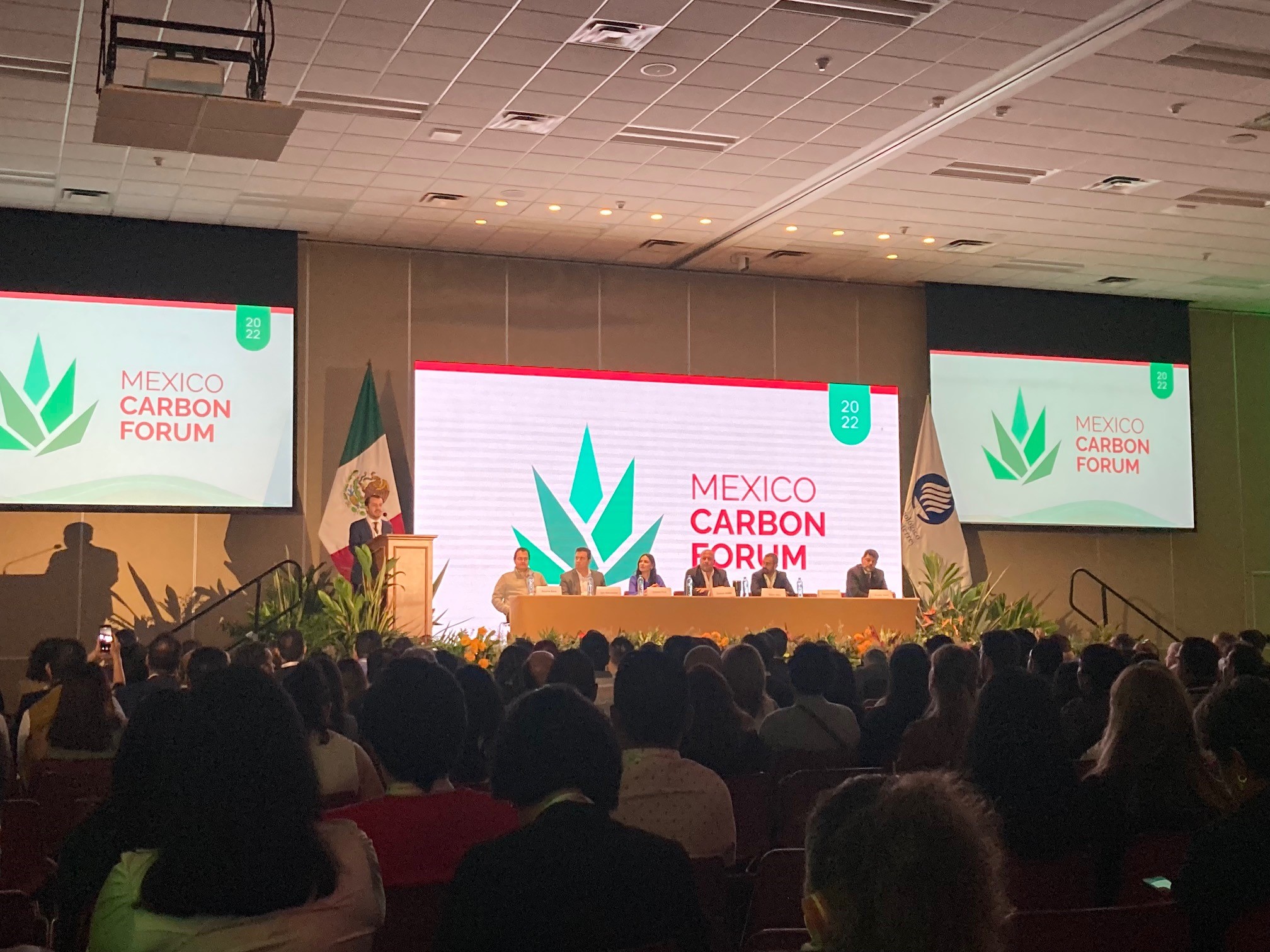From September 6-8, 2022, the Government of Jalisco and MexiCO2 hosted a terrific conference in the beautiful city of Guadalajara to discuss efforts underway in Mexico around carbon markets and on creating an ecosystem of decarbonization.
Sergio Graf, Secretary of Environment and Territorial Development for Jalisco, and his team participated in multiple panels, workshops, and meetings throughout this forum to present Jalisco’s jurisdictional approach to decarbonization, including hosting panels with private sector producers, community groups, and others discussing public-private partnerships to certify deforestation free agave and deforestation free beef. Jalisco’s efforts on reducing deforestation related to cattle is supported through the Window B process of the GCF Task Force, with generous support from Norway. The forum featured government officials from Mexico and from Mexican states, delegates from California and Québec, private sector participants, local community organizations, officials from other countries, and organizations representing Indigenous Peoples and local communities in Mexico.
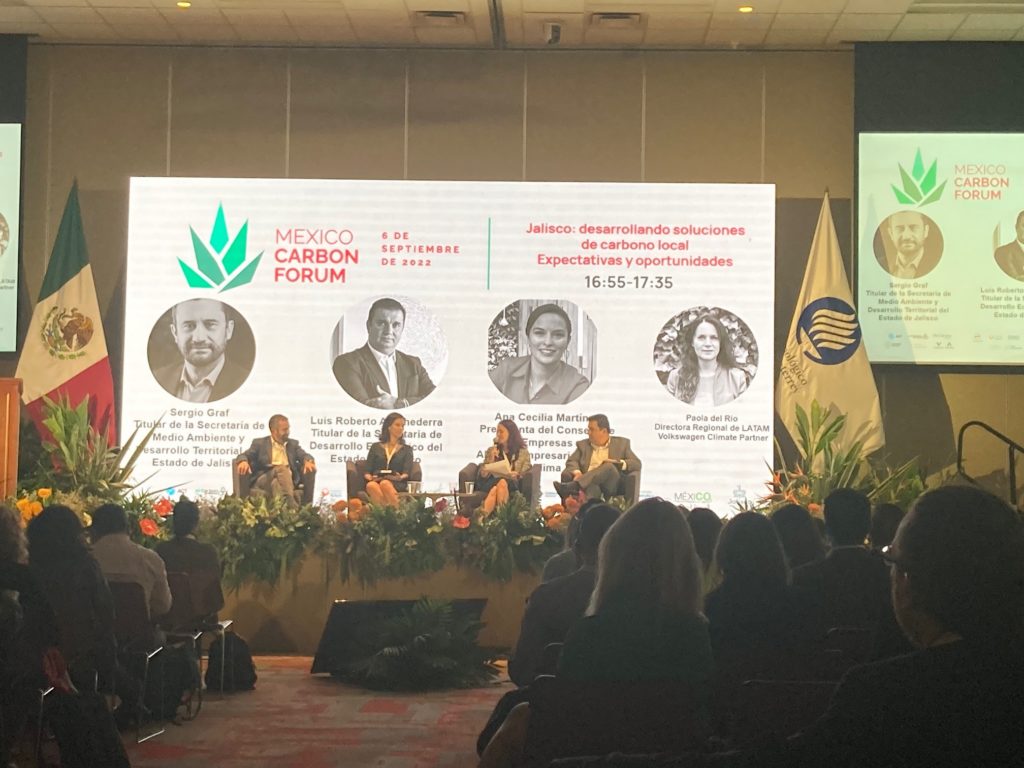
Secretary Graf presents on decarbonization opportunities in Jalisco
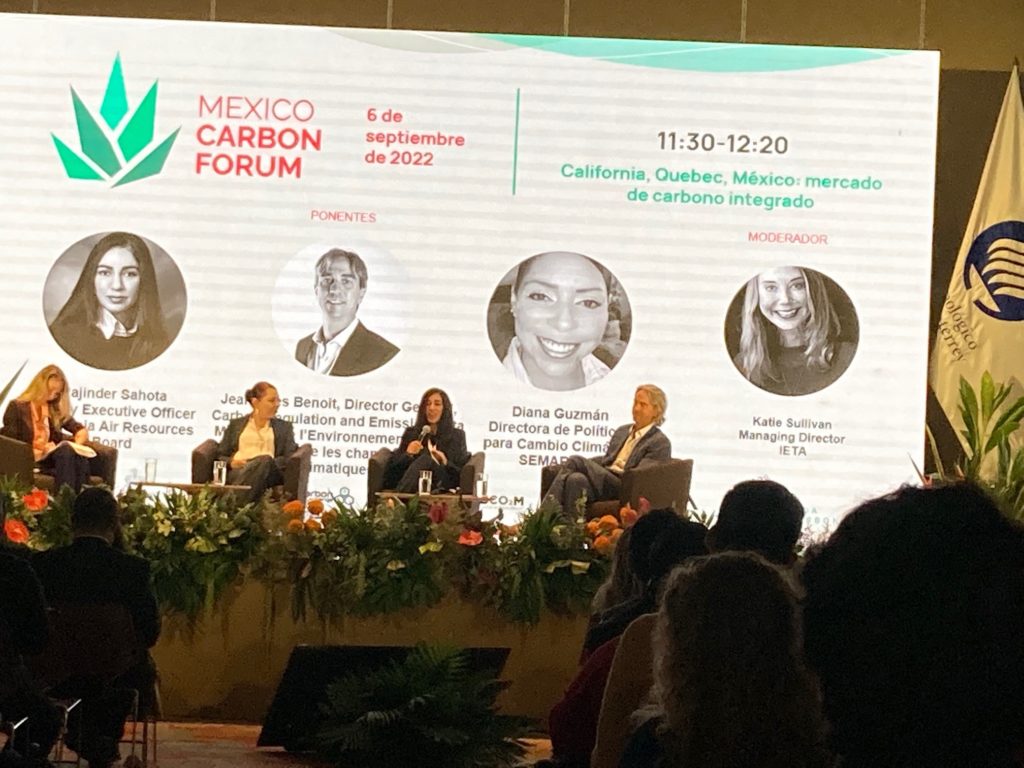
Rajinder Sahota, GCF Task Force Delegate from California and Deputy Executive Officer of Climate Change and Research at the California Air Resources Board, presents on the long-standing partnership between California, Quebec, and SEMARNAT
In addition to leadership from Jalisco, the GCF Task Force saw strong representation throughout the event. Regional coordination by Pronatura Sur, and specifically by regional lead Silvia Llamas, helped support participation in the event by Jalisco, Yucatan, Campeche, and Quintana Roo. Silvia was not only a strong coordinating presence throughout the event – she also served as a panelist discussing efforts underway in Jalisco and moderated two panels. The first focused on the importance of subnational climate action and platforms such as the GCF Task Force, Regions 4, and Under2Coalition. This panel featured Secretary Graf of Jalisco, GCF Task Force Project Director Jason Gray, and Monica Mata from The Climate Group. The second panel featured Secretary Graf, Gustavo Sanchez (Director of RedMOCAF and representative of the Alianza Mesoamericana de Pueblos y Bosques within the GCF Task Force Global Committee of Indigenous Peoples and Local Communities), and Andrés Juárez (Consejo Civil Mexicano) discussing various interpretations of recent changes to Mexican carbon market law.
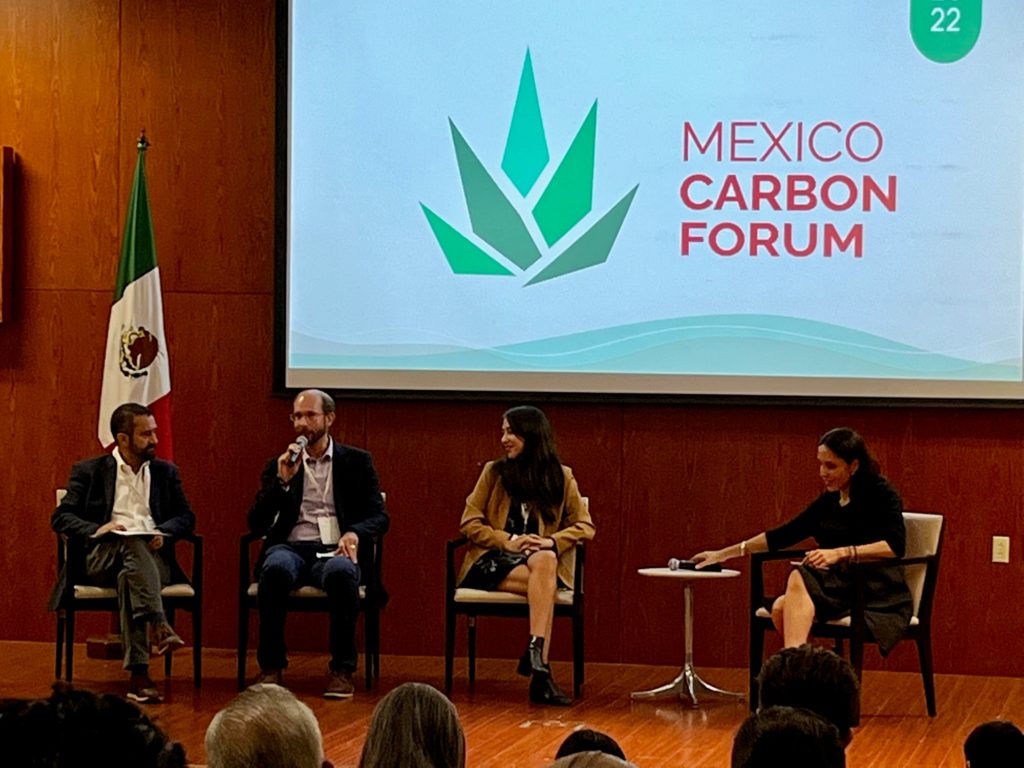
Panel on the Role of Subnational Platforms to Combat Climate Change
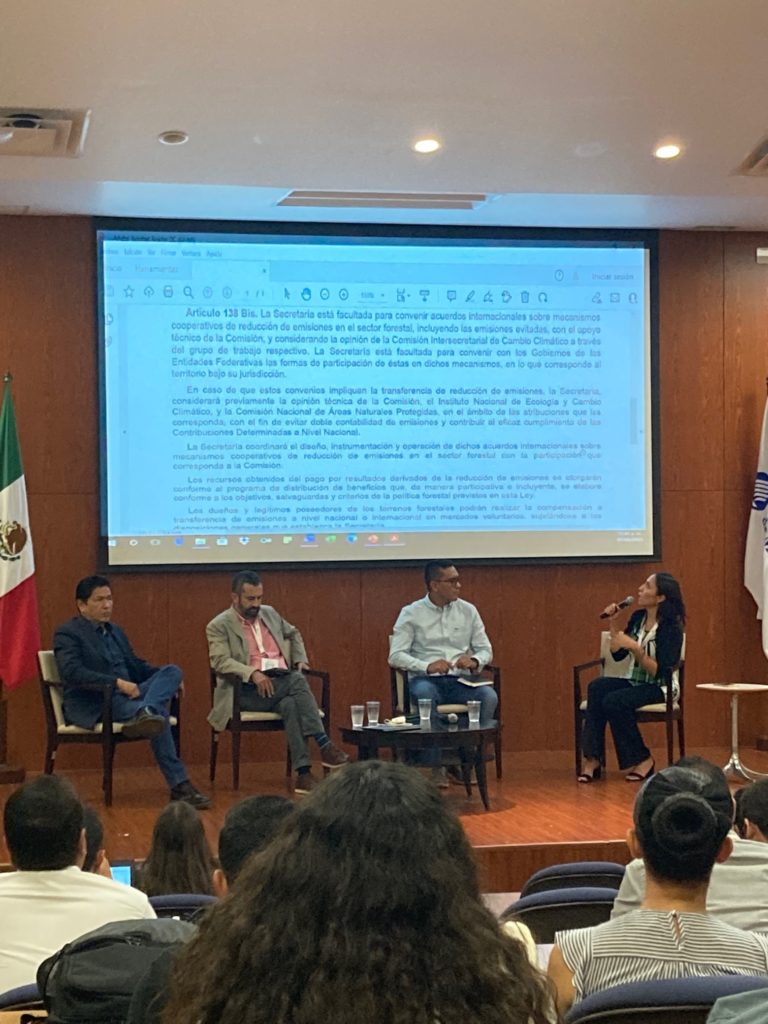
Panel on interpretations of amendments to Mexico climate law
Although many panels focused on developments within the carbon markets space for Mexico – at the national level, within subnational jurisdictions, and within voluntary markets – other panels highlighted public-private partnerships, expectations for the upcoming Conference of the Parties to the United Nations Framework Convention on Climate Change (COP27) (moderated by GCF Task Force Project Director Jason Gray), and many other topics. See here for the full agenda to the Mexico Carbon Forum.
The forum provided an opportunity for GCF Task Force members to connect with existing partners and friends, each other, and new partners seeking to advance just and equitable solutions to climate change, the biodiversity crisis, water quality issues, and economic development.
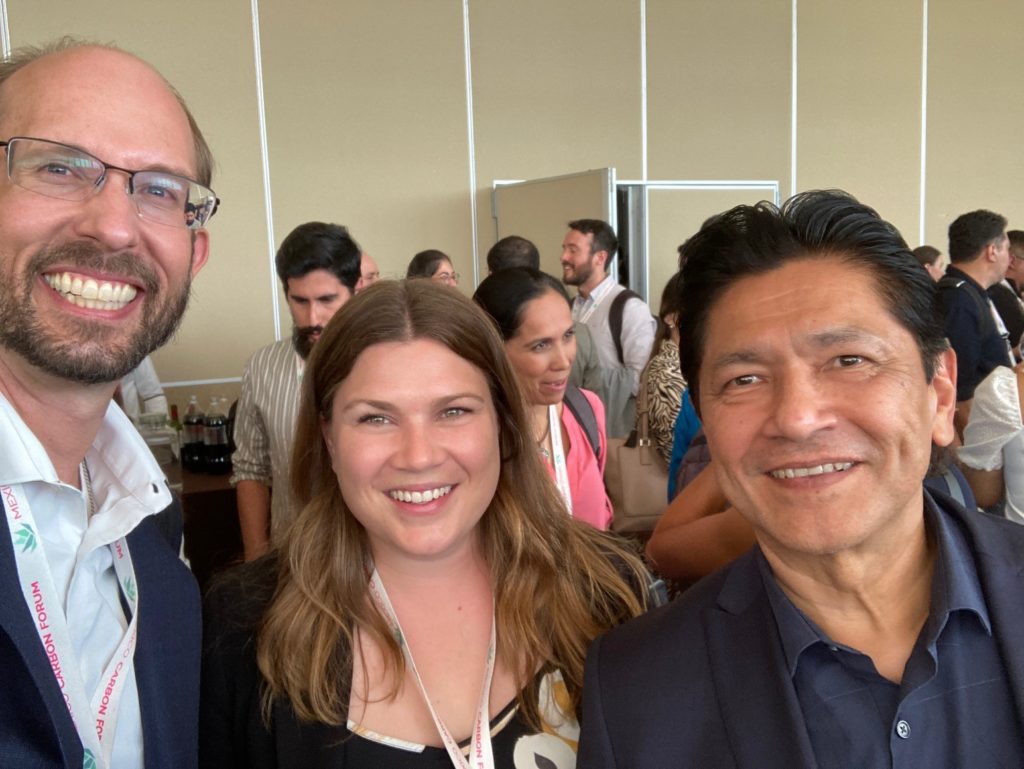
Jason Gray (GCF Task Force), Katie O’Gara (CLUA), Gustavo Sanchez (RedMOCAF and AMPB)
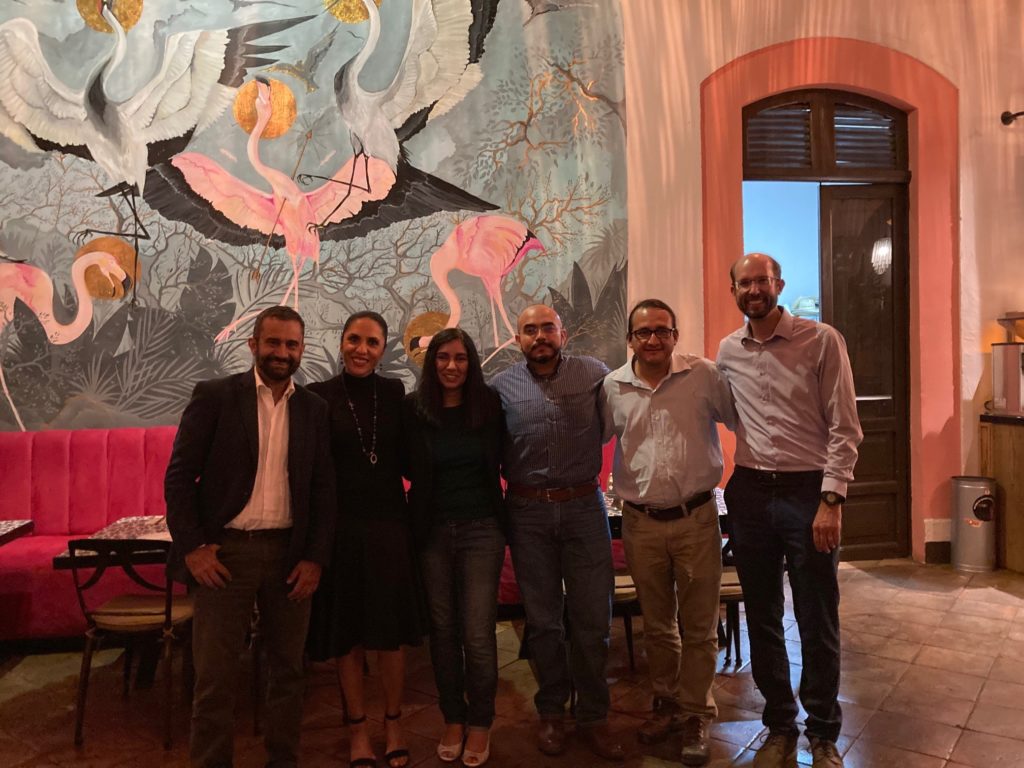
GCF Task Force Family in Mexico (Jalisco, California, Quintana Roo, Campeche)
The GCF Task Force secretariat congratulates the Government of Jalisco and MexiCO2 for an engaging and detailed series of discussions and looks forward to continuing to support our Mexico member states in their important efforts!

